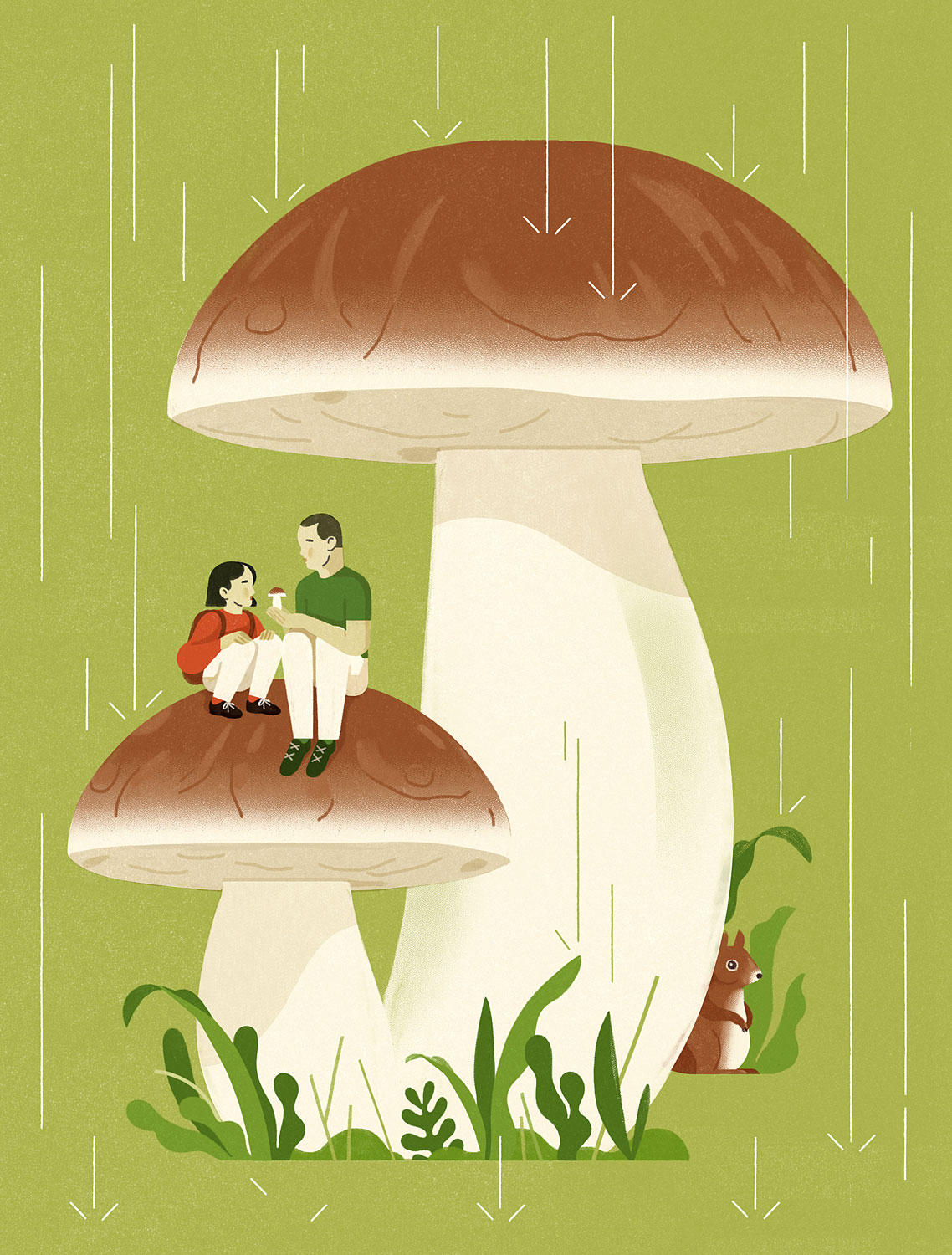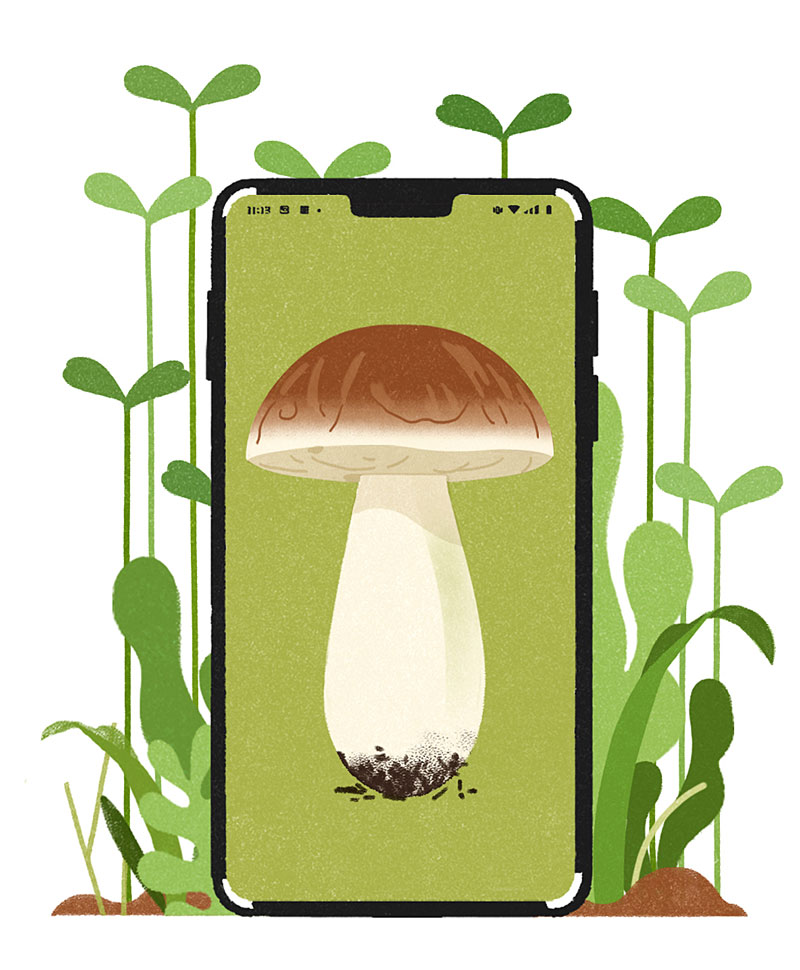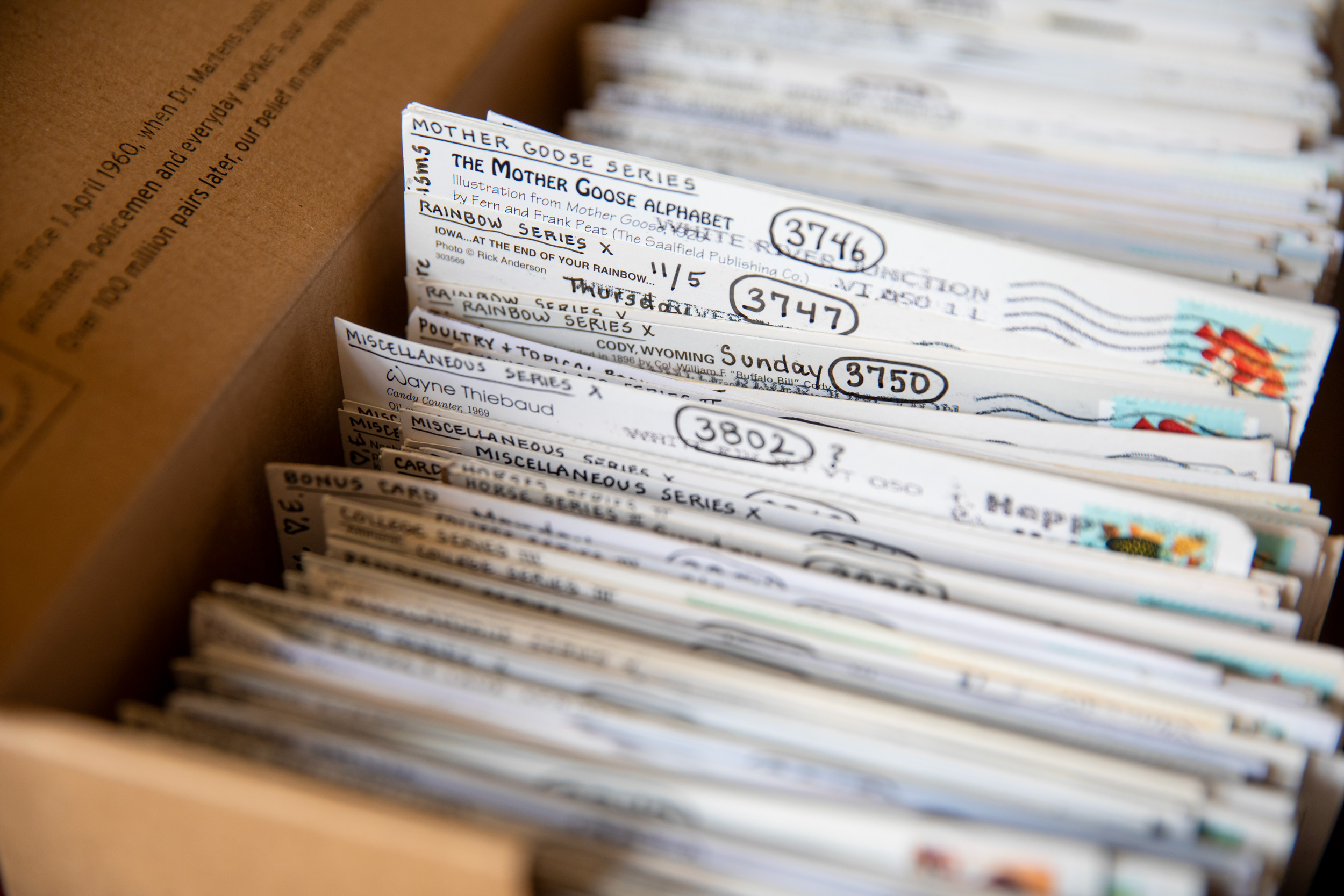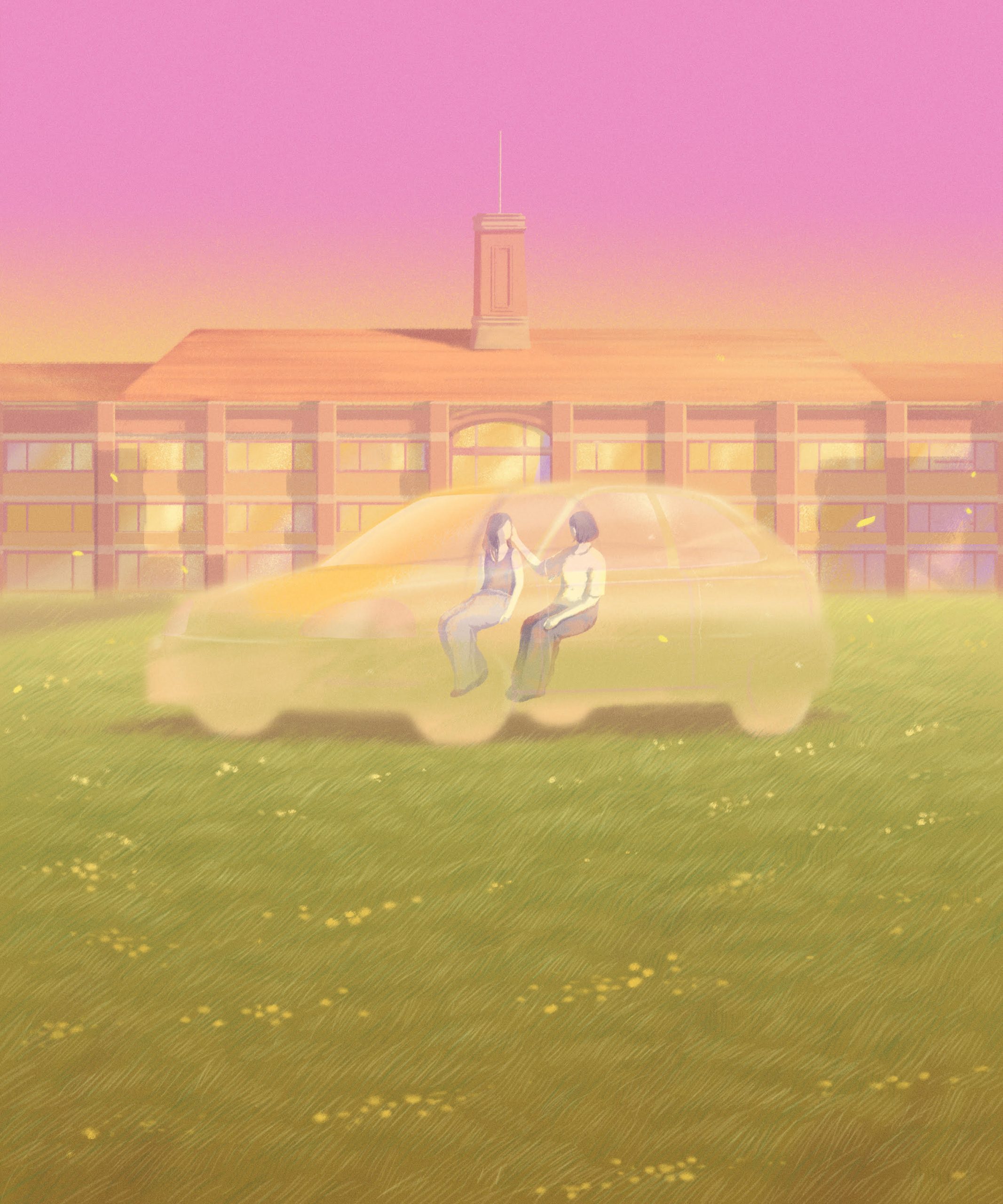
The first month of fall is her favorite of the year. Since mid-July, everything has been sun-scorched and sapped of water, the moss growing brittle, fern leaves curling in the heat, gravel dust kicking up from the road and coating vine maples around the A-frame cabin her father moved into after her parents split, and where Skye now spends every weekend. But after a few days of rain, all the plants brighten again, as if electrified, while the ground goes dark and pungent with the smell of rotting leaves and fir needles, and mushrooms pop out of the ground everywhere. Some are smaller than the nail of her pinky, others the size of a dinner plate. Skye loves watching them split the soil and unfurl like little umbrellas over the course of a day or two, and then she spends hours taking pictures of them with her phone, trying to capture them from all angles, not so she can identify them—she’s tried using her father’s mushroom guide and quickly tires of reading about gill shape and spore size—only to show off their strangeness and beauty.
But show off to whom? Her friends at school could care less about mushrooms, and if she texted them the pictures, they’d call her Cave Girl or Mountain Mama and think she’s even weirder than they now believe. No other seventh-grader she knows rides forty-five minutes east of Salem every Friday afternoon, skipping slumber parties and soccer games and excursions to the mall in favor of trees and rocks and mud. So she keeps the mushroom snaps in a separate folder from her other pictures, the selfies before her ballet recitals and the ones in which her friends make funny faces as they wait to board buses after school. She’s let her mother scroll through them a couple of times, and while the latter has made appreciative noises and complimented Skye’s attention to detail—“ooh, that one’s gorgeous,” or, “you really got the color on this one”—after looking at a dozen or so, her attention wanes, and Skye snatches back her phone.
Her father, on the other hand, will study each one intently, with his massive guidebook next to him on one side, on the other a legal pad into which he makes meticulous notes about cap and gills and stem. He’s turned it into a project: they’ll identify as many as they can, record the variety and richness of their home. And she goes along with it, because it means he encourages her to take the pictures, though knowing the Latin names for what she finds is beside the point, as far as she’s concerned. She prefers the common names, which she repeats to herself during the week, bored in Social Science class: fairy saddle, pig’s ear, destroying angel. Mostly she’s just amazed by their otherworldliness, these alien life forms that spread secretly underground in spring, wait quietly all summer, and then colonize the land when rain drives people inside. No one else seems to realize how bizarre it is. So she waits until she’s in bed at night to scroll through the pictures on her own.
This early in the season, the rain falls intermittently, and there are still enough sun breaks to spend hours by the river or on trails heading up into the surrounding hills. Her father wants a good workout when they hike, and she knows he’s frustrated by her pace as she stops every few feet to snap photos. But he also wants them to stay together when they’re in the woods—he’s reminded her multiple times that people have spotted black bear out here, and cougar, though he’s never seen either—so he slows and says nothing. The trees grow thicker as they ascend, some of the Doug fir trunks six feet across, the grooves in their bark deep enough to stick a whole fist in. Others fallen during storms have been slowly decomposing for years, blanketed in moss and lichen, fringed with licorice fern, little forests of wild blueberry growing on top, and this is where she often finds the most interesting things to photograph: spiky coral fungus, bright yellow slime molds, a purple mushroom her father describes as lewd, though he won’t explain why, another that looks like discarded orange peels.
Occasionally they spot something he wants to take home. Compared to other endeavors—especially those to do with spending money, according to her mother—he’s cautious when it comes to eating wild mushrooms. At least he is now. Last year he cooked up a pile of what turned out to be false chanterelles and made himself sick for three days. This year he swears he’ll pick only things he’s absolutely sure about. Oyster mushrooms growing on alder logs. Chicken of the woods on fir stumps. Lion’s mane on a scarred oak. Cauliflower mushrooms that look less like cauliflower than a pile of curly noodles someone swallowed without chewing and then hurled beneath a hemlock. She won’t eat any of them, though she enjoys the portabellas he buys from the supermarket and sears on the propane grill.
Today, though, she finds something that excites him more than usual. “Is that what I think it is?” he asks, and then crouches with obvious pain, pressing a hand to his lower back, to scrutinize it from below. It’s a big mushroom with a wide brown cap, a stout stem, spongy underside rather than gills. “It is,” he says. “No question.” He claps and whistles. “The king. We’re in for a treat tonight.”
“Are you sure it’s safe?” she asks. “I hate listening to you barf.”
“We’ll double-check the book. Do a spore print if we have to. But I’m pretty sure.”
“Sounds like a wolf coughing up live chickens.”
“King bolete. Prize of the woods.”
“Last time I thought you were dying. I almost called an ambulance.”
“Porcini, baby. You pay big bucks for them in Italian restaurants. And those have usually been sitting around in oil for years.”
“Does it have look-alikes? Death king? King of the underworld?”
“We’ll look it up and make sure when we get home,” he says, his fingers already gripping the stem. “But I’m like ninety-nine percent sure it’s the real deal. Maybe ninety-seven. But we’ll do our due diligence.”
“Get your grubby hands off,” she says. “I’m not finished yet.”
He backs away, and she takes several more shots from different angles. It truly is grand-looking, noble, even, though when she teases it up from the soil, small black bugs scurry beneath the cap. She’s able to brush some off, but at least a few duck into the pores that line the underside.
“We’ll soak them out when we get home,” her father says before easing it into a sealable plastic bag and tucking it into his backpack. “I’m telling you, Sills, this is one you’ll want to try. Best mushroom in the world. Except maybe for the morel. But those don’t come until spring. We’ll make fresh pasta. Or maybe homemade pizza. If we’ve got any flour. And cheese. We can probably get most of what we need at the market in Mill City. Hell, we can drive all the way to the Safeway in Stayton if we have to. No point ruining the king with crappy ingredients.”
He chatters the whole way down the trail. She hasn’t seen him this happy in months, and for that alone she’s grateful enough to determine she’ll try the mushroom even if it makes her nervous. The black beetles aren’t what bother her most—they’re hardly bigger than a pinhead—nor even the possibility of eating something poisonous. Rather, it’s that she feels she shouldn’t take things from the forest, at least not without leaving something in return. But that isn’t quite right, either: all summer she picks thimbleberries and huckleberries and sour grass without the slightest compunction. A mushroom, though, is different somehow, belonging to the secret time when the woods are mostly free of people. She wants to make an offering of some kind, but she can’t imagine what. Instead she decides she’ll get one of these photos printed and hang it on her wall.
When they get back to the cabin, she says she’ll clean up the kitchen while he goes to the store. She doesn’t want to be in the car, she tells him, or around people, both sentiments he understands and admires. The truth is, she wants more time to arrange and photograph the king. She sets him up on the deck, propped so he appears to be blooming out of the railing, out of a bird feeder, out of the palm of her hand. She arranges him with a little ceramic gnome her father bought years ago as a joke—he’d get up early in the morning and move him around their yard in Salem, and Skye, even though she knew who was behind it, would make a big show of searching and exclaiming over the little guy’s magical abilities—and snaps a dozen more photos. She shoots the king on the kitchen table, on the couch, in her bed with her stuffed animals: a goat, a sheep, a sloth. She’s quickly come to think of him as a new friend, an adopted family member, and starts to doubt the idea of having him for dinner, though she’s caught whiffs of his nutty flavor and finds herself growing hungry.

She doesn’t want to disappoint her father, but now she thinks eating the king would be like eating a chicken she raised. She brings him outside again, sets him on a bed of moss beside the path to the river, and takes one last picture. She’ll leave him there just until her father gets home, she thinks, a few more minutes in his natural habitat, and now she does tidy the kitchen counter, which is covered in plates from breakfast. If she left it to her father, he’d just pile them all in one corner while he cooked dinner, and they’d be teetering by evening; more than once he’s accidentally tipped a stack into the sink and broken whatever was perched on top.
But she isn’t at it long before she sees the king again. Through the window over the sink, he should be slightly out of view, except here he is, directly in front of her, in the grip of a squirrel. One of the little brown ones with an orange belly, a native species, her father has told her, unlike the big gray invasive ones that have taken over the parks in Salem. She knows they’re rare, and normally she’s happy to see them, but this one is chewing on the king’s cap. “Stupid squirrel!” she cries and drops the coffee cup she’s been washing. It rolls into the sink but doesn’t break, or at least from the sound it makes she doesn’t think it’s broken but doesn’t check to see because now she’s running outside, shouting and waving her arms. The squirrel takes off with the king. It ducks beneath a sword fern and then through the prickly leaves of Oregon grape and up the nearest fir, where it perches on the lowest branch, twenty feet above her head. There it squats and munches, giving her its full profile so it can keep her in view. Its teeth work methodically around the edge of the cap, and when it’s gone, down the length of the bulbous stalk. Bits of the king rain down and dot the bare soil around the tree’s trunk.
She’s weeping when her father returns with two bags of groceries, blubbering so incomprehensibly it takes several tries to explain what’s happened, punctuating every other statement with, “I’ll kill that stupid squirrel!” And then she adds, because she knows she can get away with it, “Stupid fucking squirrel.” One of the things she relishes most about being at the cabin is that she can swear as much as she wants, without anyone telling her—as her mom always does—to make sure she curbs herself while she’s at school. She knows how to curb herself plenty. What she wants is someone to encourage her to quit curbing so much, to say whatever she wants, which is what her father does when he’s in the right mood, when he’s not too depressed or suffering with back pain. She’d like to say things about the terrible year she’s been through, the shock of her family falling apart, all the more upsetting because she knows she should have seen it coming. Instead, she cries, “I’ll wring that fucking squirrel’s neck.”
She also apologizes several times, says she shouldn’t have left the king alone, but he shrugs it off, tells her it isn’t her fault, she shouldn’t be so hard on herself. Still, she sees the disappointment in his face, stubbled and tired-looking now, a hint of the sorrow he always tries and fails to hide from her darkening his features as he gazes up into the tree.
“Hey,” he says, setting down the grocery bags. “It’s no big deal.” He tries to hug her, but she bats his hands away. “It’s just a mushroom. We’ll find more, right? At least now we know it really was what I thought it was. Squirrel’s got good taste.”
Nothing he says consoles her. She left her precious king exposed, let the enemy steal in undetected, and now he’s gone inside its horrible orange belly.
“I’ve got to get these inside,” her father says. “I bought ice cream. And I picked up portabellas in case you weren’t ready to try the bolete. So we’re good. We’ve got plenty to eat. We’ll still make a feast. And you’ve still got your pictures.”
She lets him go in. She’s done crying now, but the anger lingers, along with the pain. There’s a smell in the air, moist and dank, that wasn’t here before, and she guesses it’s the scent of the ravaged king. She shouts up the tree, tells the fucking creature what she’ll do if she ever catches it. She doesn’t care if it’s endangered—she’ll show it what endangered really means. But the squirrel is gone, either too high up in the branches for her to see, or onto another tree, though she didn’t witness its escape. She pulls out her phone once more and takes a photo of the carnage on the ground, the scattered white strands, one fingernail-sized chunk of the king’s cap against last year’s downed needles. This picture she’ll show no one.
“Hey,” her father calls from the deck. “It’s just a fungus, right?”
••
Scott Nadelson is the Hallie Brown Ford Chair in Writing at Willamette. He is the author of a novel, a memoir, and five collections of short fiction, most recently One of Us. His new story collection, While It Lasts, won the Donald L. Jordan Prize for Literary Excellence and will be published by Columbus State University Press in March 2023. “The King” is adapted from a chapter of a novel in progress, Trust Me, about a father and daughter living in the Cascade foothills in the months leading up to a historic wildfire.



